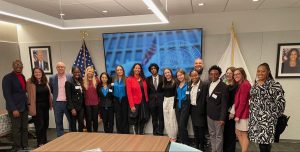Launch: Equitable & Accelerated Pathways for All is a national college and career pathways initiative representing leaders from across 14 states, including state education and workforce agencies, K-12 districts, postsecondary institutions, policymakers, and other intermediary partners. The initiative set out to harness the expertise of the five national partners and participating state and local leaders to elevate the levers that drive systems change — data, policy, funding, partnerships, and equity — and help state and local sites create equitable, sustainable systems that are built to last.
As one of five partner organizations, Advance CTE spearheads the Visibility lane of work. The purpose of the Visibility lane is to bring national attention to the Launch Initiative and to elevate what’s happening locally at sites and with partners. In this blog, Senior Policy Associate Vania Iscandari shares key takeaways from the first two sessions of the Launch Collaboration Forum.
 The Launch initiative provides a large-scale platform for 14 states to not only strengthen existing career pathways systems and their impact, but to also explore innovations for reimagining pathways design and delivery for future generations of learners. Advance CTE created the Launch Collaboration Forum as a dedicated space for states and sites to have focused engagement as well as sharing of ideas, key challenges and solutions and resources as the initiative approaches its two year anniversary.
The Launch initiative provides a large-scale platform for 14 states to not only strengthen existing career pathways systems and their impact, but to also explore innovations for reimagining pathways design and delivery for future generations of learners. Advance CTE created the Launch Collaboration Forum as a dedicated space for states and sites to have focused engagement as well as sharing of ideas, key challenges and solutions and resources as the initiative approaches its two year anniversary.
The Launch Collaboration Forum was designed to support the Impact and Innovation cohorts of Launch through cross-collaborative sessions that enable Launch participants and sites to engage with peers, discuss key challenges and solutions, and share resources that will help bolster the national network of Launch.
The forum’s primary objectives are:
- To give Launch sites more opportunities to engage with peers across the network
- To strengthen the national network for equitable career pathways development
- To provide real-time input and feedback on key challenges and barriers in career pathways
- To inform technical assistance and guide a learning agenda for continuous improvement
Advance CTE held two Launch Collaboration Forum sessions on June 28 and October 9, 2024, with a focus on career development and career navigation/advising. The following elevates key takeaways that can be applied to the Launch initiative as well as the field at large.
Session 1: Deepening Career Pathways and Addressing Barriers in State-Specific Career Development Programs
In the first session, the Launch Collaboration Forum featured two highly engaging presenters including Kristie Van Auken, Special Advisor, Workforce Engagement at the North Carolina Department of Public Instruction, from North Carolina and Mark Baxter, Vice President at Rodel from Delaware. The session was designed as a peer-to-peer consultancy in which participants were able to offer real-time feedback and thought partnership to session presenters. In two breakouts, presenters shared their state-specific challenges using a “problems of practice” approach where a series of clarifying, followed by probing questions from peer consultants were posed to speakers. This allowed for presenters to deepen their thinking, culminating in a reflective discussion and an opportunity for the presenter to share insights gained.
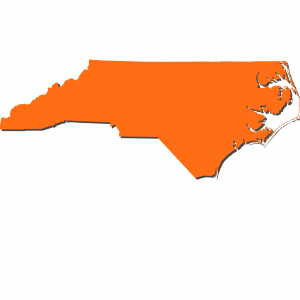 North Carolina: Building Regional Ecosystems for Career Development
North Carolina: Building Regional Ecosystems for Career Development
North Carolina’s challenge revolved around creating and supporting regional/local ecosystems of career preparation. The state is working on aligning career development plans across multiple school districts but faces challenges in making the plans actionable and engaging for learners. The state’s focus is to ensure that career development is not just a “check-the-box” exercise, but a deep, meaningful experience for learners.
Key takeaways from the discussion are as follows:
- Collaborative Models: Several participants shared insights from their own states, including Rhode Island, where individualized learning plans (ILPs) are being leveraged to connect learners’ academic work to career pathways. This approach ensures that school counselors and other stakeholders have the tools to guide learners toward meaningful career choices.
- Leveraging External Resources: Indiana has adopted an advising framework that includes asset mapping to tap into external resources like employers, community organizations, and workforce development boards.
- Building Capacity: As North Carolina grapples with high student-to-counselor ratios (316:1), participants suggested capacity-building strategies, such as utilizing external partners (e.g., community organizations, and employers) to expand the support network for learners.
 Delaware: Centralizing Career Navigation Systems
Delaware: Centralizing Career Navigation Systems
Delaware’s challenge centered around creating a centralized career navigation system that keeps career information accessible and manageable for learners and families. The team from Delaware highlighted their difficulties in keeping the system streamlined while providing easy access to vital career-related resources.
Key takeaways from the discussion are as follows:
- Creating a Hub for Career Information: Participants discussed the idea of building a centralized portal or platform where learners can access career exploration tools, work-based learning opportunities, and postsecondary resources. This singular platform would simplify access to career information and help learners navigate the often complex pathways to career success.
- Engaging Stakeholders: Delaware is already working with key stakeholders, including high school counselors and community-based organizations, but feedback suggested further engagement from local workforce development boards and employers.
- Learner-Centered Design: The group emphasized the importance of designing the portal with the student-user in mind, ensuring that the interface is user-friendly and accessible to the families and learners who will rely on them the most.
Session 2: Advancing Career Advising Practices and Strengthening State Networks
The second forum session built on these state-specific challenges and expanded the conversation into broader best practices honing in on a topic that many in the field continue to explore—-career advising.
In this session, Advance CTE leveraged two of the Launch partners, Education Strategy Group and ExcelinEd to facilitate breakout sessions focused on taking a deeper dive into aspects of career advising including:
- quality access
- credentialing
- the role of intermediaries
- connecting across the educational continuum, and
- leveraging data for career advising outcomes.
The key insights shared from participants are summarized below.
Best Practices and Strategies for Expanding Access to Career Advising
Expanding access to high-quality career advising is a pressing concern for many states. The forum opened with a discussion on leveraging state resources and finding effective models for scaling advising services to reach more learners, especially in rural or underserved areas.
Key Insights:
- Building a Network of Career Coaches: States like Tennessee have invested in placing career coaches in every middle and high school, recognizing the importance of having dedicated professionals who can guide learners through the myriad of career and postsecondary options available to them.
- Leveraging Intermediaries: The discussion emphasized the role of intermediaries—community organizations, workforce boards, and nonprofits—in expanding career advising capacity. Rhode Island shared how intermediaries help bridge the gap between employers and learners by providing work-based learning opportunities and career exposure activities.
- Statewide Coordination: A key takeaway was the need for statewide networks of career advisors and coordinators to ensure that all learners receive consistent, high-quality guidance, regardless of where they live.
Standardizing Training and Credentialing for Career Advisors
A consistent challenge across states is the need for standardized training and credentialing for career advisors. While some states have local training programs and certifications, the lack of a national standard has contributed to inconsistencies in advisors’ skill competency and quality of services provided to learners.
Key Insights:
- Standardizing Competencies: Effective career advisor training and professional development needs to address both foundational competencies (building relationships, implicit bias) and technical skills (e.g., helping learners with FAFSA, job applications, labor market data). States like Indiana are working on creating a statewide coaching framework to ensure consistency across the state.
- Credentialing Systems: There is currently no official national credentialing system for career advisors, but Texas and Illinois are developing local certification programs that can be scaled and adapted to other regions. There was also discussion about leveraging continuing education units (CEUs) or licensure systems to encourage professional development for career advisors although there is a Certified Career Counseling certification offered by National Career Development Association
Exploring the Role of Intermediaries in Career Pathways
The second session also addressed the role of intermediaries—organizations and entities that help coordinate career pathways and connect learners with career resources.
Key Insights:
- Successful Intermediary Models: States like Tennessee and Rhode Island shared successful models of intermediary organizations that have bolstered career advising efforts. For instance, the Niswonger Foundation in Tennessee provides additional career coaching support in rural areas, helping to expand capacity in regions with limited resources.
- Strengthening Partnerships: The session underscored the importance of creating collaborative partnerships between K-12 schools, postsecondary institutions, workforce development boards, and employers to enhance career pathways for all learners.
Leveraging Data to Improve Career Advising Systems
Data plays a crucial role in informing decisions about career advising programs. The breakout discussion focused on data utilization, particularly in tracking career advising touchpoints, student outcomes, and program effectiveness.
Key Insights:
- Data-Driven Decision-Making: States like Maryland and Kentucky are already collecting data on advising practices, including the number of learners advised, the quality of advisement, and the effectiveness of various programs. Data analytics are being used to identify in-demand career sectors, helping advisors direct learners toward high-wage, high-growth occupations.
- Overcoming Barriers to Data Integration: The session also discussed challenges in data collection, such as discrepancies in how data is tracked across districts and schools. Participants emphasized the need for data integration across systems to ensure that data is accessible and actionable for learners, families, and educators.
The Launch Collaboration Forum served as a powerful reminder of the value of coming together in the spirit of shared learning and collective problem-solving. Across both sessions, participants were able to openly share their unique challenges and inform solutions, offering a space where ideas could flow freely and where each voice was heard with care and respect. This kind of synergy is essential as we work toward creating equitable career pathways that are not only effective but also inclusive and responsive to the needs of all learners.
To learn more about the Launch Initiative please visit www.launchpathways.org.
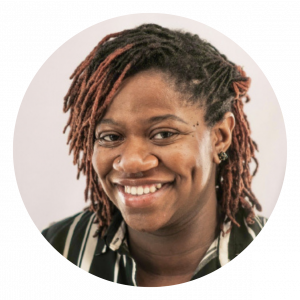 Vania Iscandari, senior policy associate
Vania Iscandari, senior policy associate


 Since the fall of 2021, Advance CTE’s Opportunity Gap Analysis (OGA) workshop has provided training, resources, and support to help state leaders identify and address gaps in access to high-quality Career Technical Education (CTE). To date, Advance CTE has led in-depth gap analysis training with 39 state teams from across the country. These teams have further disseminated the gap analysis process within their state CTE systems, resulting in changes in policies and practices that bring identifying and addressing gaps to the forefront of their CTE programs. This is the third post in a blog series where Senior Policy Associate, Jessi Maddox, interviews previous participants of the OGA workshop to share the impact and the lessons learned from implementing the training in their state.
Since the fall of 2021, Advance CTE’s Opportunity Gap Analysis (OGA) workshop has provided training, resources, and support to help state leaders identify and address gaps in access to high-quality Career Technical Education (CTE). To date, Advance CTE has led in-depth gap analysis training with 39 state teams from across the country. These teams have further disseminated the gap analysis process within their state CTE systems, resulting in changes in policies and practices that bring identifying and addressing gaps to the forefront of their CTE programs. This is the third post in a blog series where Senior Policy Associate, Jessi Maddox, interviews previous participants of the OGA workshop to share the impact and the lessons learned from implementing the training in their state. 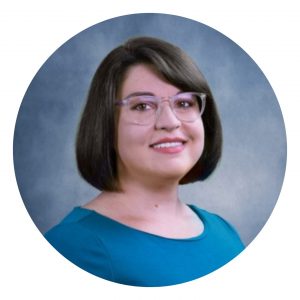 The next cohort of the Opportunity Gap Analysis workshops will launch in the Spring of 2025. In this six-month cohort Advance CTE is providing training, resources and support to help state leaders identify and address gaps in access to high-quality
The next cohort of the Opportunity Gap Analysis workshops will launch in the Spring of 2025. In this six-month cohort Advance CTE is providing training, resources and support to help state leaders identify and address gaps in access to high-quality 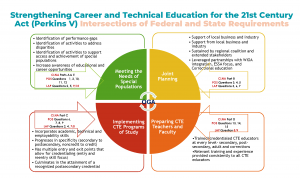

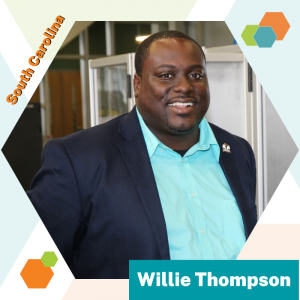 Willie Thompson
Willie Thompson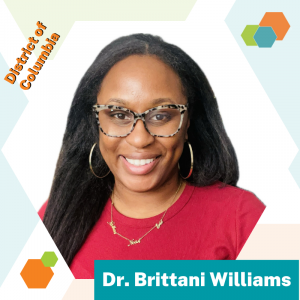 Dr. Brittani Williams
Dr. Brittani Williams 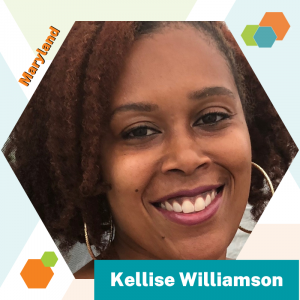 Kellise Williamson
Kellise Williamson  Mike Woods
Mike Woods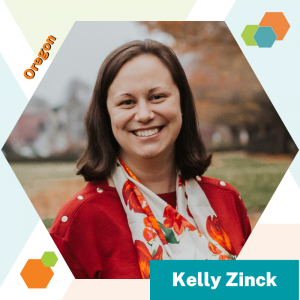 Kelly Zinck
Kelly Zinck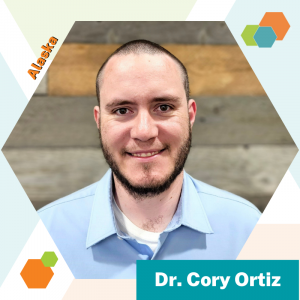 Dr. Cory Ortiz
Dr. Cory Ortiz 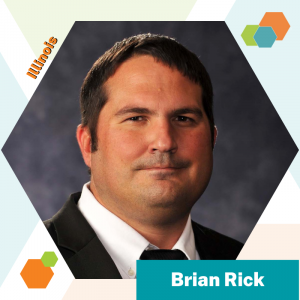 Brian Rick
Brian Rick 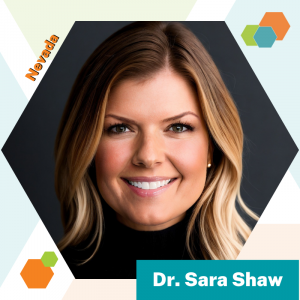 Dr. Sara Shaw
Dr. Sara Shaw 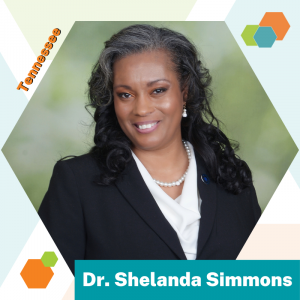 Dr. Shelanda Simmons
Dr. Shelanda Simmons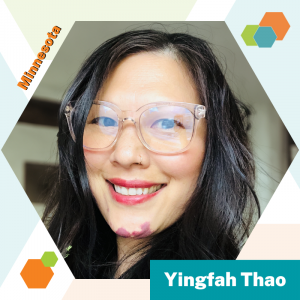 Yingfah Thao
Yingfah Thao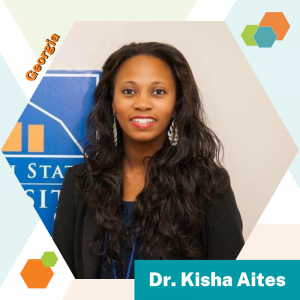 Dr. Kisha Aites
Dr. Kisha Aites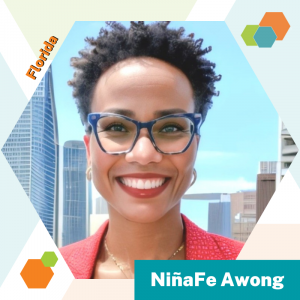 NiñaFe Awong
NiñaFe Awong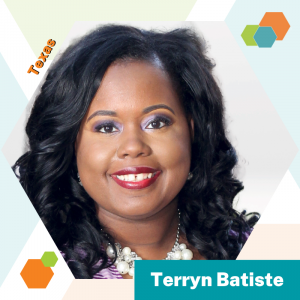 Terryn Batiste
Terryn Batiste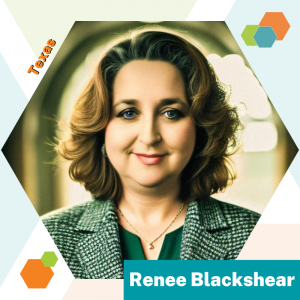 Renee Blackshear
Renee Blackshear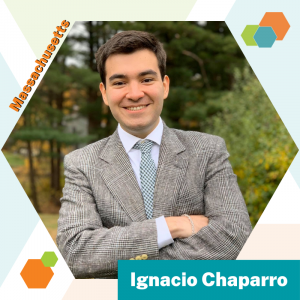 Ignacio Chaparro
Ignacio Chaparro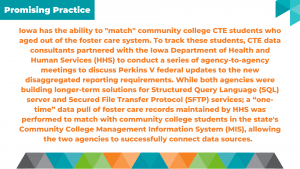
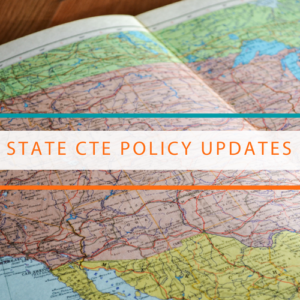 As explained in
As explained in 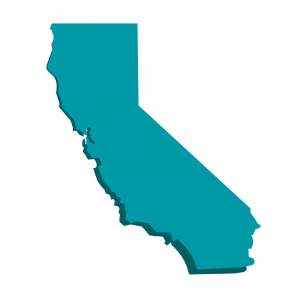
 In October 2023, New Hampshire passed
In October 2023, New Hampshire passed 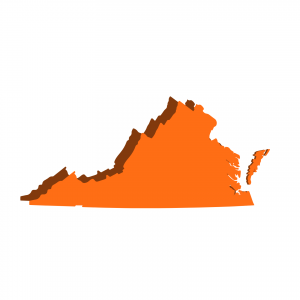 In March 2023, Virginia enacted
In March 2023, Virginia enacted 
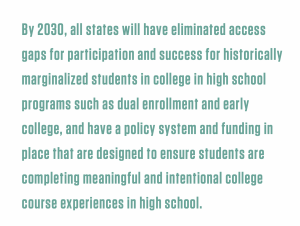
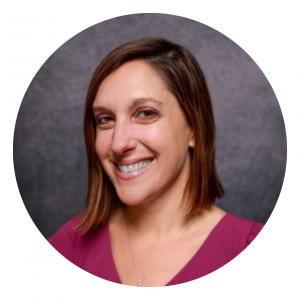 Relevant Resources
Relevant Resources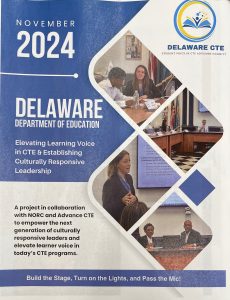 Last month, I had the privilege of attending a briefing at the U.S. Department of Education, led by a group of Career Technical Education (CTE) learners from the state of Delaware. Their expertise and passion demonstrated the true power, inspiration and innovation that can come from centering learners in matters of policy and practice within CTE.
Last month, I had the privilege of attending a briefing at the U.S. Department of Education, led by a group of Career Technical Education (CTE) learners from the state of Delaware. Their expertise and passion demonstrated the true power, inspiration and innovation that can come from centering learners in matters of policy and practice within CTE.